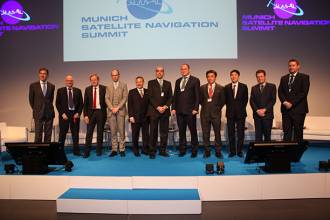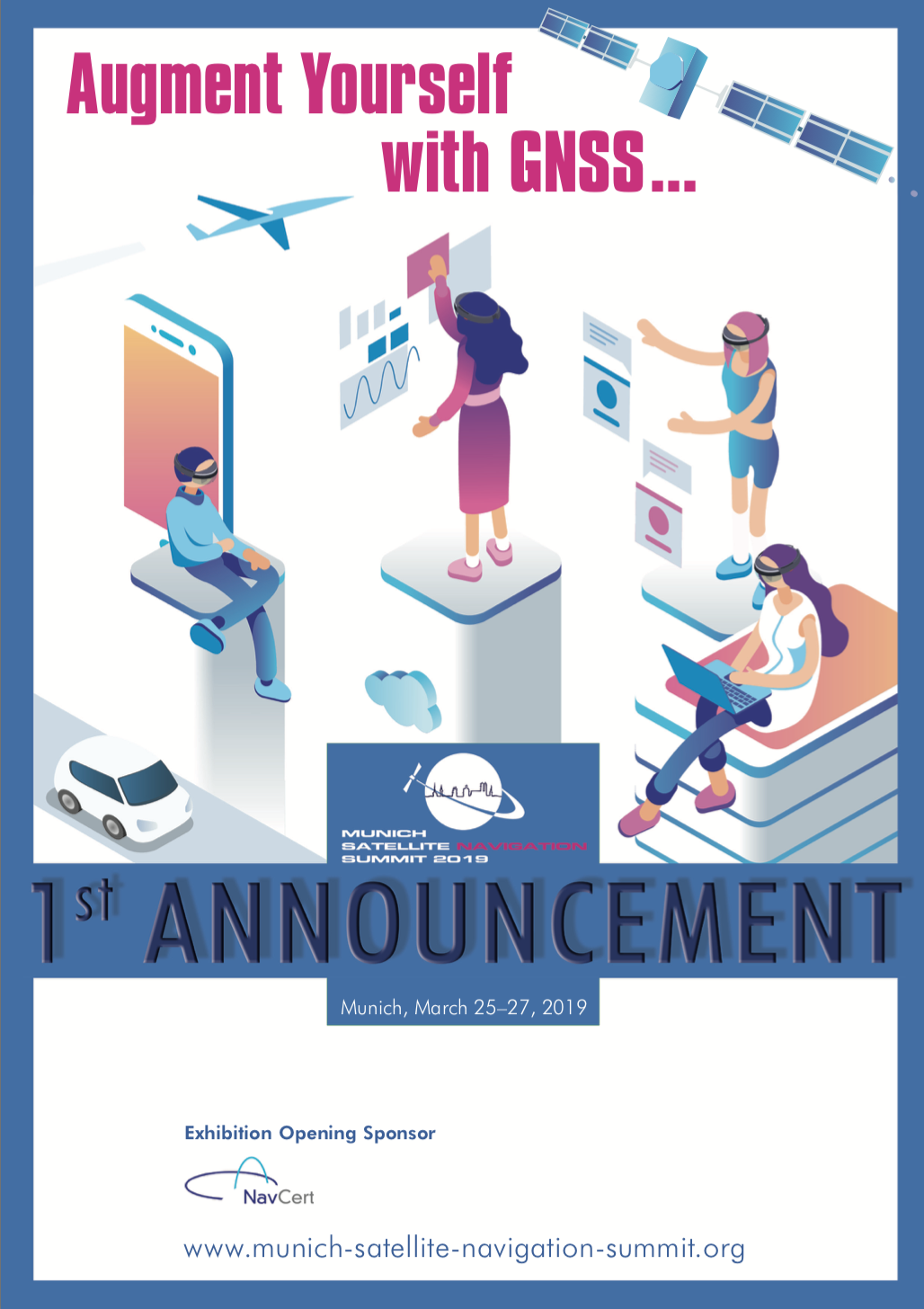The 14th Munich Satellite Navigation Summit kicked off Monday with a champagne welcome and the opening of the exhibits at Alte Bayerrische Staatsbank (Old Bavarian State Bank), followed by an exciting opening plenary panel that featured updates on each of the GNSS systems.
Inside GNSS, a media partner of the Munich Satellite Summit 2018, is on hand to cover the conference this week and to provide updates on the global trends surrounding satellite navigation. The conference’s theme this year is “GNSS — the key to autonomy?” but much of Monday’s plenary session covered cooperation and competition as leaders from the various constellations focused on updates, cooperating with other systems and countries, and how competition can end up delivering the best services to users.
Prof. Dr. Thomas Pany, from the Institute of Space Technology and Space Applications (ISTA), Univeritaet der Bundeswehr Muenchen, Neubibereg, Germany, opened up the plenary session with a welcome, while moderator Claus Kruesken, introduced the panel members and led the question-and-answer session.
The first panelist to speak was Matthias Petschke, director European Union Satellite Navigation Programmes, European Commission. When addressing competition and cooperation, he said, “We need a balance which will lead to better services and better innovation.”
Petschke talked about cooperation for programs between Japan and the EC, and the United States and the EC as examples of impressive steps, and also boasted that “Galileo is delivering today much better services than expected.”
He touched on potential budget obstacles that may need to be squared up but added that the GSA and the ESA are fully committed in 2018 to make Galileo a continued success.
ESA Director General Johnann-Dietrich Worner also mentioned the importance of promoting global cooperation in making sure that redundancy and reliability are delivered and working together to “enhance satellite navigation for daily use.”
Further emphasizing cooperation, Graham Turnock, head of the UK Space Agency, singled out Galileo and EGNOS as excellent examples of cooperation. As for competition between GNSS systems, Turnock said, “Competition can be healthy and has driven innovation with Galileo.” He added that when asked who wins between cooperation and competition, “We can all win.”
The U.S.’s Harold “Stormy” Martin, director, National Coordination Office for Space-Based Positioning, Navigation, and Timing, was excited to say, “I think we’re entering a golden age of GNSS systems.”
Also on the panel were Oleg Kem, Director of the Department of Navigation Space Systems (GLONASS) of the Roscosmos State Corporation; Dr. Jun Shen, deputy director, international cooperation center, China Satellite Navigation Office; Go Takizawa, executive director of QZSS Strategy, National Space Policy Secretariat, Tokyo, Japan; Carlos des Dorides, executive director, GSA; and Simon Plum, managing director for the Galileo Program, DLR.
The discussions and questions touched on constellation updates, continued cooperation, contract updates, Galileo clocks, spectrum regulations and protections, GPS OCX updates, cyber security, interoperability, jamming and the potential of offering PPP corrections on a global scale free of charge.
Some interesting debates followed, making it clear that the rest of the Munich Satellite Navigation Conference this week should provide plenty of excitement and insightful debates.






